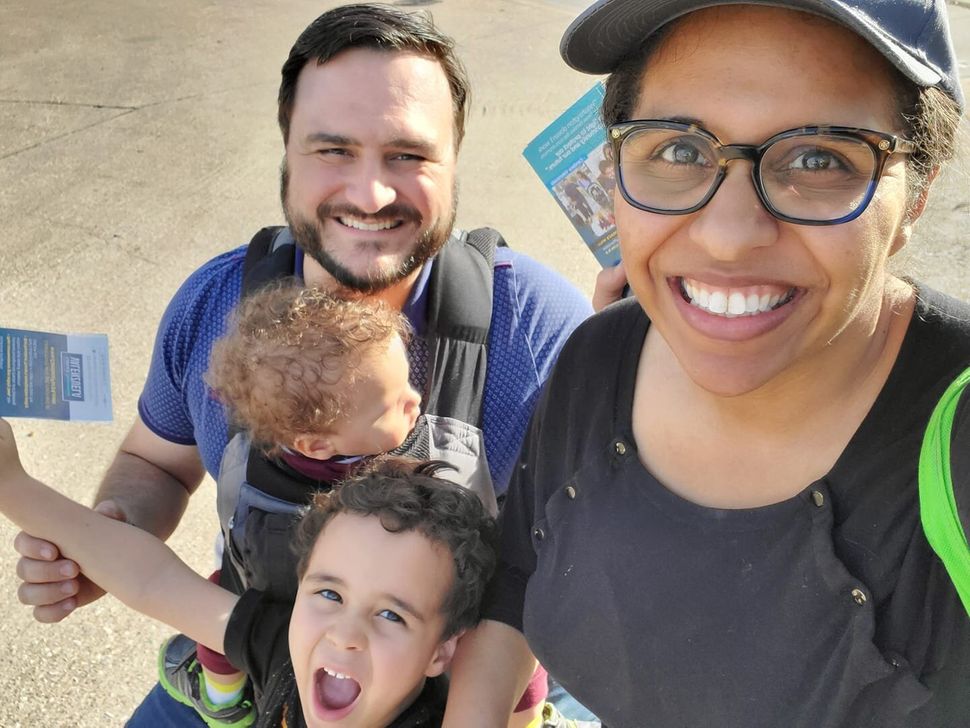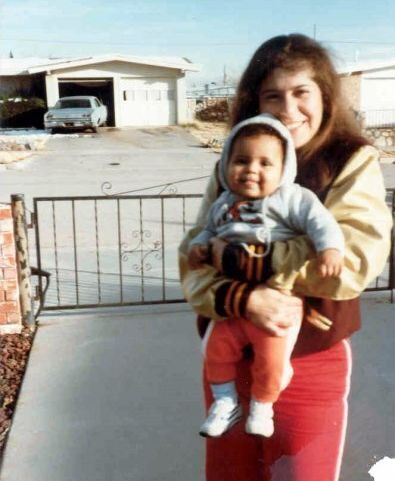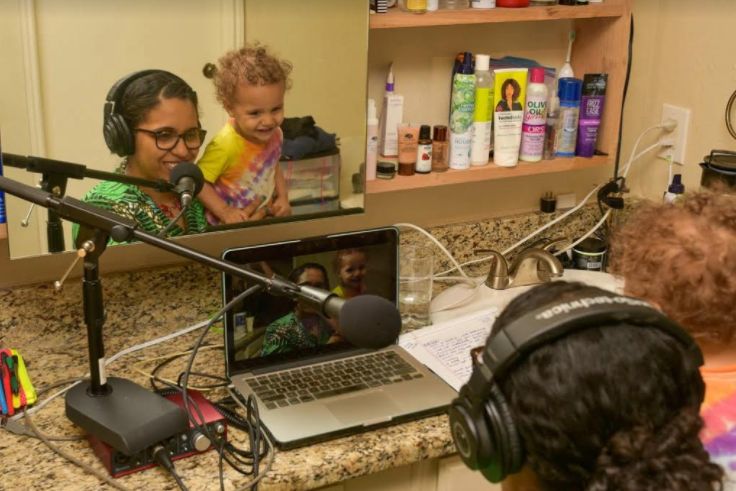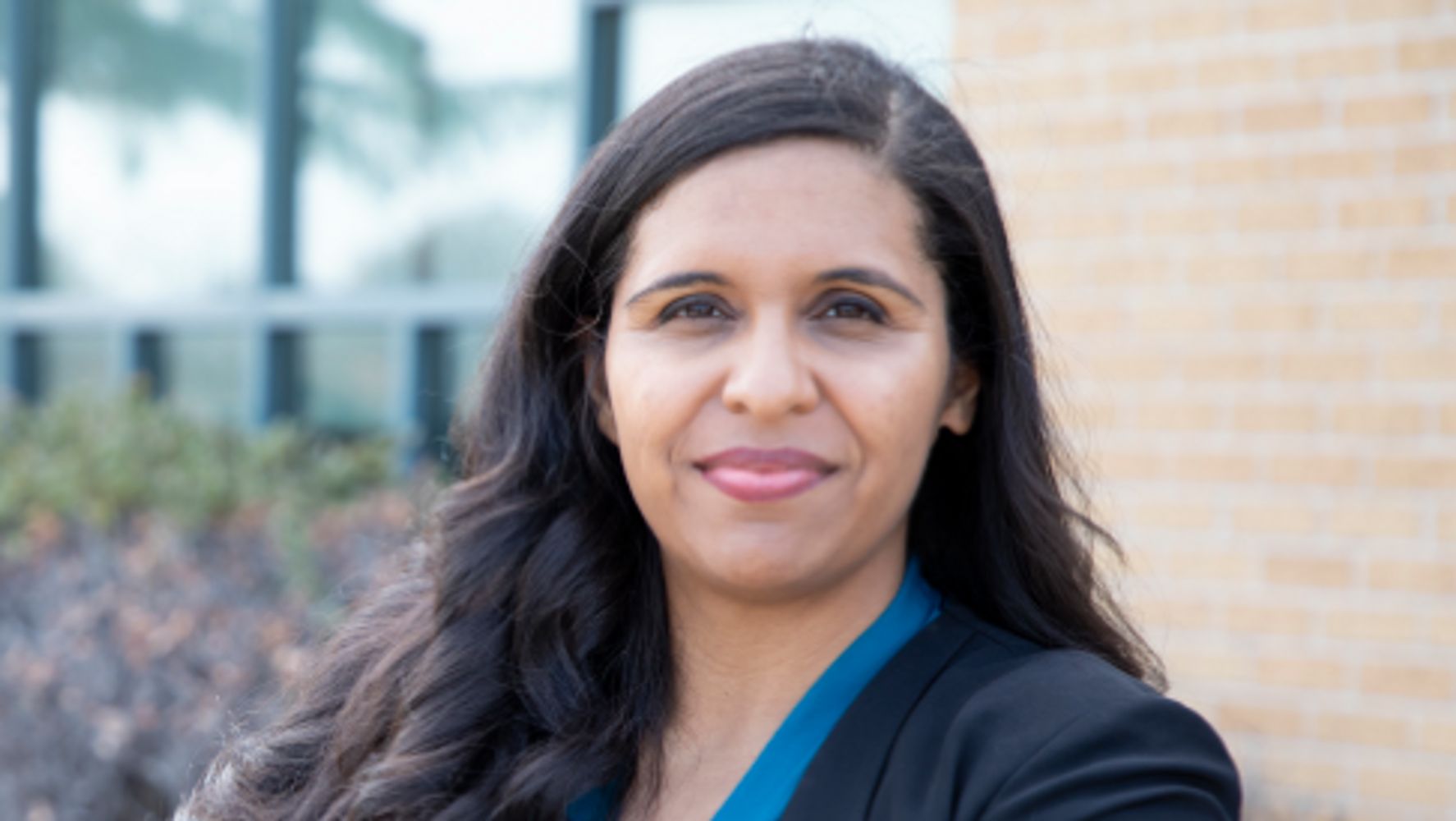[ad_1]
Candace Valenzuela knows what it’s like not to know if your family members will have a roof over their heads, or if they’ll be able to pay the bills. That’s why, she says, she would make a great member of Congress.
“A lot of people in this country respect the ‘pull yourself up by your bootstraps’ story. But a lot of folks miss the point. We have a lot of people in Congress who can talk about all this in the theoretical sense, but they don’t know the anxiety of not being able to pay the bills, of the pit in your stomach of not knowing if you have a home tomorrow and going through that repeatedly,” Valenzuela said.
Valenzuela, 36, won her Democratic primary runoff in Texas’ 24th Congressional District, stretching between Dallas and Fort Worth, in July. She will face Republican candidate Beth Van Duyne in November’s election for the open congressional seat.
If Valenzuela wins, she will be the first Afro-Latina congresswoman in the nation’s history. She said she’s running to give children the opportunities she had — to go from living through a stint of homelessness as a child to being the first person in her family to go to college.
“If you have so much say over a system that is life or death for many Americans, somebody has to have experience with it,” said the former educator and mother of two who has lived in federally subsidized housing, used food stamps and attended public schools.
Democrats are hoping Valenzuela will flip the seat blue. The district, currently represented by retiring Rep. Kenny Marchant (R-Texas), is a “toss-up,” according to political analysts. While Trump won it in 2016, Democratic former Rep. Beto O’Rourke won it in his 2018 Senate race. And the 2018 Democratic challenger for the House seat lost against Marchant by just 3 percentage points.

The 24th District’s population is more than half people of color, including one-quarter Latinx and 13% Black. Valenzuela herself was born in El Paso to an African American father and a Mexican American mother.
Her family is in many ways quintessentially American: Her great-grandfather was an immigrant from Durango, Mexico, and fought in the U.S. military in World War I. Both her parents were also in the military. “My dad used to jump out of planes, my mom used to fix them,” she said.
Despite all this, Valenzuela says the people in her family have, at times, been treated like outsiders. Her grandparents, American citizens whose first language was Spanish, were beaten in school for speaking Spanish, as was her mother.
“I say this as a Latina, as an African-American woman: I have a visceral sense of how my family has built and defended this country,” Valenzuela said. She noted that her family has been in the U.S. longer than her white husband’s — “but nobody questions my husband’s citizenship or his right to be here, or be in charge, but I’m constantly facing that question.”
Valenzuela’s parents split when she was young. She, her mother and her younger brother ended up with relatives in what Valenzuela called “an abusive situation.” Fleeing violence, they ended up living on the street for a few nights when she was 3 or 4 years old, her brother still in diapers.
Valenzuela credits government-subsidized housing and food stamps, as well as a public school education, with providing the stability she needed. She remained in the same school district from second grade on, got a full scholarship to attend Claremont McKenna College near Los Angeles, and later worked in education. She got her first taste of electoral politics when she ran for school board in Texas in 2017 and won, serving two and a half years before deciding to run for Congress.

Valenzuela considers herself a progressive but isn’t running as far left as some other young progressive candidates — a route that makes sense politically in a district with significant Republican support. When it comes to health care — an issue she cares deeply about as a survivor of a car accident in high school that left her with chronic back pain and steep medical bills — she doesn’t push for “Medicare for All,” but rather a public option, with people making less than $50,000 fully covered and others getting 90% of costs covered.
Similarly, you won’t hear her calling for abolishing Immigration and Customs Enforcement, but instead pushing for a pathway to citizenship for all undocumented immigrants.
“If we want equity and justice, we can’t just fight for ourselves, we have to fight for it for our brothers and sisters,” Valenzuela said, cheering the recent protesters calling for racial justice. “For someone like me, straddling these worlds for a long time, seeing where things fall through the cracks when you’re talking about immigration, but not Black immigration, or talking about police brutality, but not Latinos who experience police brutality — these issues are not in silos.”
I say this as a Latina, as an African-American woman: I have a visceral sense of how my family has built and defended this country.
Candace Valenzuela
As she juggles parenting a five-year-old and one-year-old with reaching out to potential supporters, Valenzuela said it’s “not lost on me how vulnerable other families are” without adequate government support amid the pandemic.
Like many parents working from home during the coronavirus pandemic, she and her husband swap shifts to watch the kids. Valenzuela often finds herself working from the bathroom, which has a door lock, so she can “get a moment of peace” to make phone calls. She hangs a makeshift background from the ceiling using a broom to hide the toilet during virtual interviews.
Without her mother-in-law’s support with child care, she isn’t sure she’d still be running.
“I know other families are putting their lives at risk, doing everything they can,” she said, noting many have no choice but to put their health in jeopardy to go to work. “I don’t think it’s fair we’re putting families in this position.”

Van Duyne, Valenzuela’s GOP opponent, is an avowed fan of President Donald Trump and has earned his endorsement. She formerly served as mayor of Irving, Texas, and worked for nearly two years in the Trump administration’s federal housing department.
As of the latest June fundraising figures, Van Duyne is outpacing Valenzuela with about $1.4 million raised to the Democrat’s $1.1 million. Valenzuela’s campaign doesn’t accept corporate PAC money. (Two other candidates — Darren Hamilton, a libertarian, and Stephen Kuzmich, an independent — are also running.)
Valenzuela has received a number of high-profile endorsements, including from former President Barack Obama, EMILY’s List, Texas’ AFL-CIO, Sens. Elizabeth Warren (D-Mass.) and Kamala Harris (D-Calif.), as well as Reps. Ayanna Pressley (D-Mass.), Joaquin Castro (D-Texas) and the late John Lewis (D-Ga.).
Calling all HuffPost superfans!
Sign up for membership to become a founding member and help shape HuffPost’s next chapter
[ad_2]
Source link

